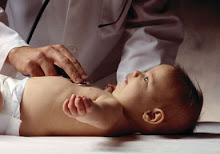Title :
Syncope
Author Details :
Ira ShahMedical Sciences Department, Pediatric Oncall, Mumbai
Clinical Problem :
Case : A 12 year old boy presented with 3 episodes of giddiness followed up fainting in last 6 months. All episodes occurred while exercise or playing and the child would remain unconscious for 2 hours. There is no convulsion, uprolling of eyeball, bladder or bowel in continence or any aura. Family history is non-contributory. On examination, pulse is 82, min, regular and blood pressure is 112, 70 mm of Hg. Systemic and general examination is normal.
Question :
What is the diagnosis_?
Expert Opinion :
Expert`s opinion- This child has presented with 3 episodes of unprovoked syncopal attack. The common causes of syncope are • Vasovagal syncopal attacks • Micturation and cough syncope • Cardiac syncope due to arrhythmias or long QT interval or Aortic Stenosis • Absence seizures • Laughter syncope • Heat stroke • Hypoglycemia • Orthostatic hypotension Vasovagal syncope is usually seen in overcrowded, hot conditions. Micturation syncope occurs while micturating whereas cough syncope occurs on coughing, laughter syncope occurs at the time of laughing. In this child, all these causes of syncope are unlikely as the attacks have occurred while playing. Orthostatic hypotension occurs when getting up from lying down position suddenly and hypoglycemia usually occurs on fasting or starvation. Absence seizures may be accompanied by aura and bladder or bowel incontinence. Thus, all these causes also seem to be unlikely. Thus, the most likely cause in this child for the syncope would be a cardiac cause. Arrhythmias in children usually are seen with drugs, left atrial enlargement or cardiomyopathy. Thus there would be associated cardiac symptoms or abnormal cardiac findings. Long QT interval may lead to unprovoked sudden unconciousness or even death. There may be associated family history of sudden deaths. This child`s ECG showed presence of long QT and he was treated with Propranolol. Over next 6 months, there was no further episode of syncope. E-published June 2009, Vol 6 Issue 6 Art 33
Assinar:
Postar comentários (Atom)







Nenhum comentário:
Postar um comentário